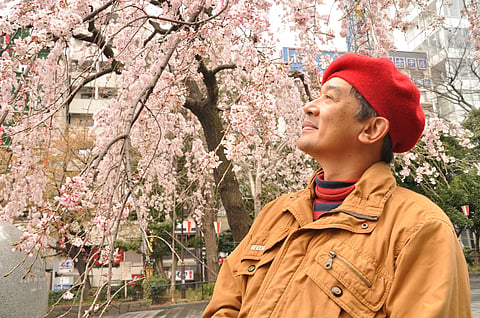
- NEWS
- the EDIT
- COMMENTARY
- BUSINESS
- LIFE
- SHOW
- ACTION
- GLOBAL GOALS
- SNAPS
- DYARYO TIRADA
- MORE

Archives are not just windows to the past but doors that show how people lived and how their committees functioned.
The International Council on Archives or ICA describes an archive as "the documentary by-product of human activity retained for their long-term value" that includes written documents, photographs, videos and films, and sounds, to name a few.
It likewise stresses the importance of archiving, to "enable society to undertake a wide range of roles for civilized communities to take root and flourish, from education and research, entertainment and leisure, to protecting human rights and confirming identity."
It further notes that "archives are unique, contemporaneous records and so once lost cannot be replaced."
The Southeast Asia-Pacific Audiovisual Archive Association was formed in 1996 for "building collections, searching for lost films and recordings, developing facilities, expanding funding, creating oral histories, exchanging knowledge, and growing technical skills" since the loss of documentary heritage, particularly films in the region, is a pressing issue then and now.
For its 25th anniversary in 2021, the group was supposed to release a book on the state of cinema and scholarship in the Asia-Pacific region, but was delayed for a year due to the pandemic.
Keeping Memories: Cinema and Archiving in the Asia-Pacific was recently released, published by Bughaw, an imprint of the Ateneo de Manila University Press. The book was written by scholars and cultural advocates from the region and elsewhere, and edited by film historian and filmmaker Nick Deocampo.
The book is divided into four parts— Archives and Memory, Archives and National Identity, Archives and the Asia-Pacific, and Archives in Cinema History.
Discussed in the first part are the personal discoveries and "little" contributions to Asian cinema by Dina Iordanova of the University of Saint Andrews in Scotland; Southeast Asian film archiving experiences by Charles Musser of Yale University; challenges on film preservation by Mick Newnham, a visiting fellow of the University of Melbourne; a critique on Henry Francia and his works by Bono Olgado of the University of the Philippines; and memory preservation by Joie Springer, an international documentary heritage consultant.
In the second chapter, Wimal Dissanayake of the University of Hong Kong presents his concepts on cinema and archiving and national identity in Sri Lanka while Bliss Cua Lim of the University of California shares her thoughts on Philippine national cinema and Akira Tochigi of the Japan Association of Moving Image Archivists talks about two important films in Japan recorded in the 1921 Motion Pictures Exhibition in Tokyo, which future emperor Hirohito visited.
Also in the same chapter, Shivendra Singh Dungarpur of India's Film Heritage Foundation discusses film preservation and restoration in India. David Hanan, an Honorary Senior Fellow at the University of Melbourne's Asia Institute, imparts his inputs on national identities through films produced in Australia and Indonesia. Bede Cheng of the film restoration lab L'Immagine Ritrovata Asia talks about efforts to preserve Hong Kong films. And Nguyen Minh Phuong of the Vietnam Film Institute writes about the challenges on moving image preservation in Vietnam.
The chapter Archives and the Asia-Pacific, Nadi Tofighian of Stockholm University argues that a trans-national approach is needed in examining early films in Southeast Asia while Karen Chan, current SEAPAVAA president, talks about the Asian Film Archive founded in 2005. Aaron Gerow of Yale University and Joshua Harris of the University of Illinois discuss digital access to film archives in the time of the Covid-19 pandemic and the various facets of film archiving in the Pacific respectively.
In the last chapter, presented are the digital film archives of women cinema in Hong Kong by Gina Marchetti of the University of Hong Kong, the importance of archives and archiving by Deocampo of the University of the Philippines, and archives and environmental issues by Stephen Bottomore of the Film History Journal.
These personal experiences, musings, and studies on films and archiving should keep the memories and consciousness alive on the rich documentary heritage the Asia-Pacific region has.
By the looks of it, it's a race to save and rediscover films produced in the region — films that could define not only national identities but also trans-cultural links. Thus, film archiving and archives are important and must be done regardless of any political or environmental situation.
As Deocampo puts it, "Archives can help historians reconstruct film histories that have been lost or shunned."
He adds, "For whatever reason, archives are sanctuaries of memories that bring back life to objects fondly remembered."
